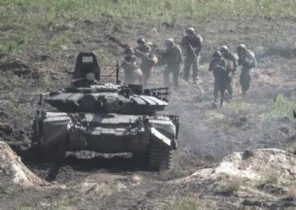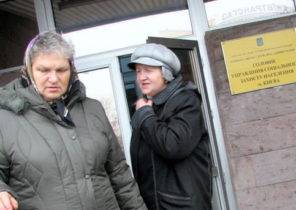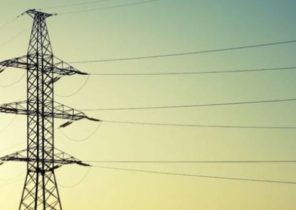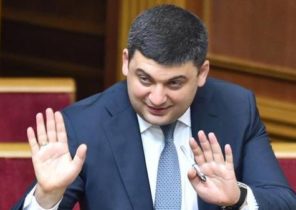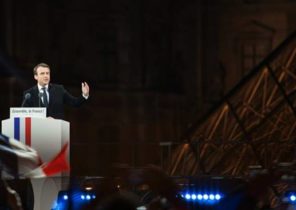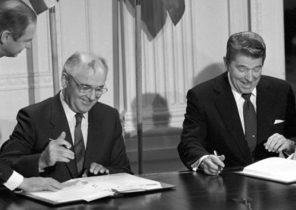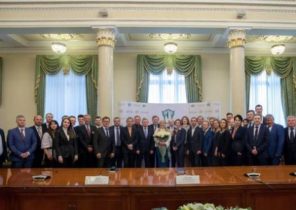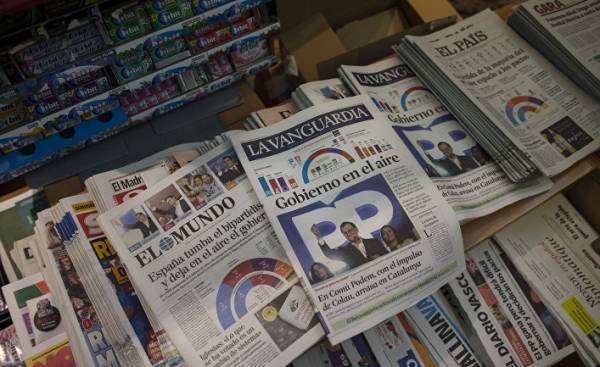
The previous President Barack Obama stayed in the collective memory largely as a “good President”. On the one hand, this is due to his image in the eyes of the public, on the other, with the inevitable comparison with the first decisions of the current occupant of the White house. However, the reality is still different. Let us cite only two facts: he did not stop any of the wars involving his country when he won the presidency, although promised something completely different. He also has not closed the illegal prison at Guantanamo Bay, where dozens of people who are not charged with any crime. Their case was not considered in any of the courts of law, thus, they are illegally held in detention for several years.
This is not evidence of its respect for human rights and the various peoples who want to define their present and future without anyone’s outside interference. If we talk about domestic policy during his presidency are evident by the continuing evidence of racism and discrimination against blacks throughout the country, particularly committed by police, which caused the protest, which was not observed here for many years. And this despite the fact that the government was the first in U.S. history a black President. But, whatever it was, Barack Obama left the White house, generally leaving behind good memories. Of course, among other things, it had a decisive influence major media outlets, which can be considered information and image of lobby.
Now let us turn our gaze to Latin America. During his presidency, along with local neo-liberal forces, Obama has consistently sought to restore the traditional domination of the US on this continent and to this end actively used media.
After the turn to the left a significant part of Latin America in the first decade of this century, the United States tried to regain its famous “backyard”, which was considered lost, to continue the spread of neo-liberal ideas on the continent and the strengthening of the devotees of the Washington government.
To achieve this goal, the United States will resume the use of many tools and methods of past decades, such as economic strangulation, bribery, corruption, suppression of speeches of human rights activists, the blocking of external financing subversive activities and, of course, inflating the errors committed in these years in the change process. In short, all the old techniques, with the exception of the establishment of military dictatorships in the last decades of the last century. Now the establishment of “representative democracy” by the traditional political and economic forces will be sufficient to ensure the coming to power of the above modes. Although this does not constitute a waiver of the so-called soft coup, when the US deems it necessary.
But, in addition to the above methods, there are others who have played a decisive role. They should stay apart. This constant use of propaganda, manipulation of information, distortion of facts, name-calling leaders and democratically elected leaders. An important element are also the insults and slander against the country’s leadership and leaders of social movements. All this is done with the purpose of diluting the processes of change, and not for political and information analysis in the interests of the population. For the practical application of these methods, in addition to famous think tanks of the right wing that develops the strategy and areas of activity, will be used by the media in close conjunction with the local oligarchy, who will carry out the Directive, coiled from the United States and Europe, especially from Spain.
So, O Globo in Brazil, Televisa and Tele Azteca in Mexico, the group Clarín in Argentina, the Cisneros group in Venezuela, Caracol in Colombia and other major media groups will be the main tools in the hands of financial and industrial circles in this new phase unfolded in recent years.
This phase of the new attack power for restoration (or maintenance) of the neo-liberal system, noticeably shaken as a result of transformation processes and the perturbation masses permanent impoverishment and violation of their fundamental rights. These media form now communication geopolitics in Latin America and work in close partnership with different media groups in Europe and USA such as Fox, Prisa and others. They define and disseminate ideologies, unified thinking, which once again tends to become dominant. They define the horizons of the possible well-being, which should aim the population; they develop “truth” to legitimize its system and maintain it.
If to glance in these years, we will see how vehemently opposed the above media processes of change. Their editorial policy in many cases has defined a strategy to counteract these changes or justify the actions of those who have always been on the side of the financial-industrial circles. Even some soft or parliamentary coup d’etat as successful (Honduras, Paraguay, Brazil), and failed (Ecuador, Venezuela, Bolivia), they played a decisive role. For example, in September 2008 in Bolivia, when these media disseminate guidance to groups involved in the coup attempt. Representatives of these media have been points of friction even before the fighting was going on there. And this is no exception, but an integral part of reality. Or take the constant smear campaign of the spouses Kirchner, when the government of Cristina Kirchner has tried to limit the monopoly position of the media group Clarín. In the same vein, The Guardian launched a campaign in support of peña Nieto (Peña Nieto), who was a candidate for President of Mexico, and at the same time spread slander against his main rival, a candidate from the left forces of andrés Manuel lópez Obrador (López Obrador, Andrés Manuel).
In 2002 in Venezuela, the media Mogul Gustavo Cisneros (Gustavo Cisneros) was one of the main instigators of the attempted coup to overthrow Hugo Chavez, and some even considered him the main initiator. But the point is that, as written at the time of the Spanish press (El Mundo, 24.11.16), “both in Venezuela and in other countries, powerful media supported the coup directly and indirectly. Four out of five TV channels owned by private companies, has constantly called for the strike and demonstrations under the slogans of overthrow of the President. The same picture is observed and in the press, where nine out of ten major Newspapers are in private hands. After the people and military to restore constitutional order, the press did not give any information about this”.
With very rare and honorable exceptions, most media groups in Latin America are now pursuing the following objectives: to legitimize the authority of the ruling circles; to counteract the change processes that are carried out in the life of the masses; and to continue the imposition of neoliberal ideas. Thus, they are engaged not only in journalism, as the maintenance of traditional political and industrial-financial power.
Thus, their constant campaign of slander and smear, creating a picture of the world, the interests of the authorities, anti-democratic attacks on democratically elected governments, indicate the need for urgent democratization of the media, though they deny this need.
